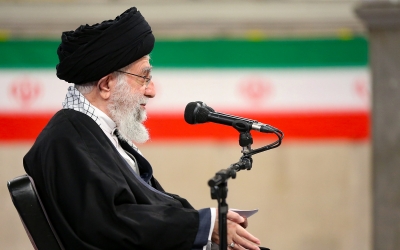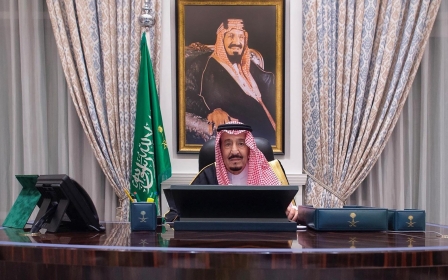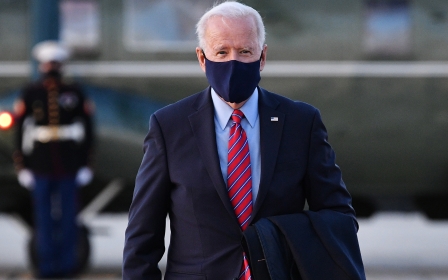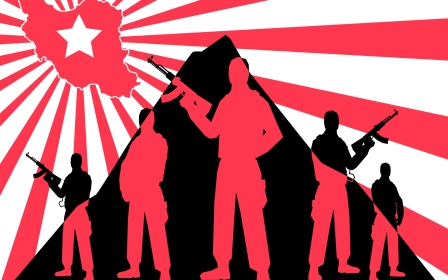Biden's policies are the same as Trump, Iran's sole presidential candidate says
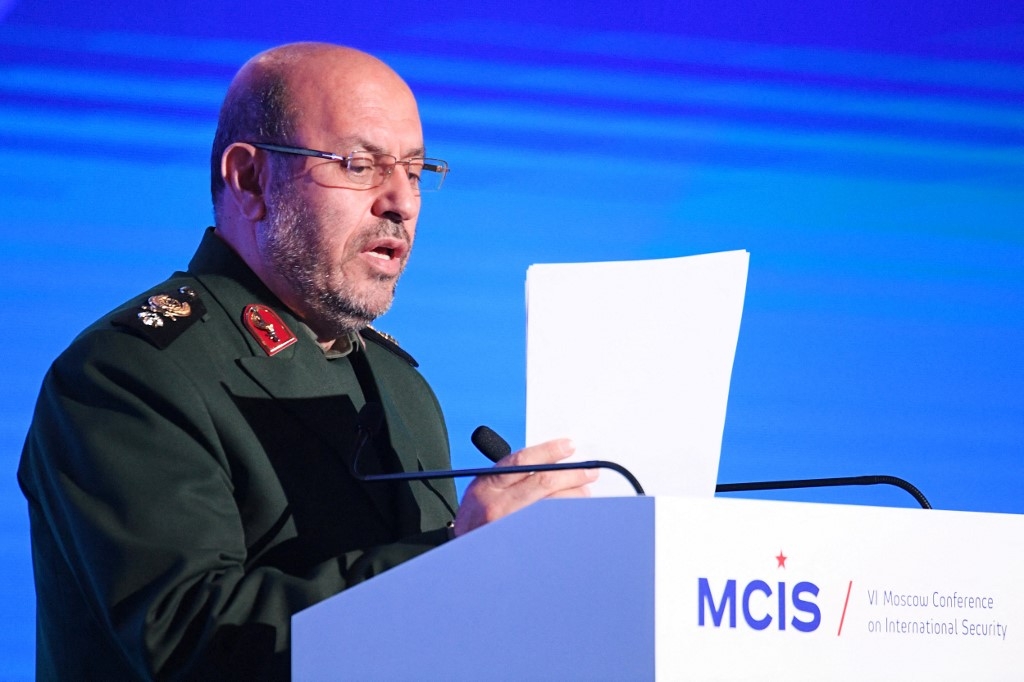
The only declared candidate in Iran's presidential elections has dismissed the foreign policy of US President Joe Biden's administration as a continuation of "Trumpism", and warned Tehran was preparing retaliatory measures to force Washington to change its diplomatic trajectory.
"The Biden administration talked about diplomacy, multilateralism and interaction in the international arena as well as returning to its international commitments," Hossein Dehghan said in an interview on Thursday with The Guardian.
"However, we still see the same policies from the newly elected administration as we did from the Trump team: not lifting the oppressive sanctions against Iranian people, continuing to block Iran oil revenue in foreign banks while we need the money to fight against the coronavirus pandemic.
"Altogether this means the continuation of Trumpism in international relations."
Dehghan said the US was not in a position to set preconditions for Iran's return to the 2015 nuclear accord, and called for guarantees the White House would not leave the agreement again.
Biden's predecessor, Donald Trump, pulled the United States out of the nuclear accord between Iran and six powers in 2018 and reimposed comprehensive sanctions on Tehran.
In response, Iran breached the deal in a step-by-step reaction to Trump's "maximum pressure" policy, but it has repeatedly said it could quickly reverse those violations if US sanctions were removed.
"The Americans' approach has made our nation not trust them. Therefore, we want to receive guarantees that the Americans will not infringe [upon] the agreement again," he said.
"The Americans are not in the position to set up conditions for their return to the negotiating table. They violated the agreement, so in order for them to return to negotiation, they must first lift unilateral and illegal sanctions against Iran and fulfil their commitments.
"Then we will have the opportunity to negotiate the issues as regards the damages and the expenses due to America leaving the JCPOA."
'Not solely a military person'
Iran's presidential election will take place in June, and current president, Hassan Rouhani, has served two four-year terms in office and therefore cannot run again for reelection.
Dehghan, a military adviser to Supreme Leader Ayatollah Ali Khamenei, said Tehran would seek to change the course of diplomacy starting on 19 February, when it will begin to cut back access for UN weapons inspectors to nuclear sites, and said Iran would demand damages from the US for the impact of sanctions.
The International Atomic Energy Agency (IAEA) reported on Wednesday that Iran had begun producing small amounts of uranium metal, which could be used to build the core of an atomic bomb. The process is prohibited under the nuclear deal.
Both the Biden administration and the Rouhani government have expressed a willingness to return to compliance with the deal, but they are in opposition as to who should take the first step.
In an interview with CBS News on Sunday, Biden said he would not lift sanctions before returning to the negotiating table.
Dehghan also rejected the idea of conducting reciprocal measures with Washington to begin a return to commitments under the original nuclear accord.
In addition to discussing the nuclear deal with the US, Dehghan, a former Islamic Revolutionary Guards Corps commander who is also under sanctions levied by Washington, denied that his candidacy as a former military official was a sign of a growing militarisation within the government.
"I am not solely a military person. I am an academic, I taught mainly in non-military centres, I have been an adviser in many social and foreign policy issues," he said, noting that the UK's Winston Churchill and France's Charles de Gaulle were both in the military before serving in their respective civilian governments.
"I have been the manager of many economic entities. I have all the characteristics of a military person regarding punctuality, leadership, teamwork and a goals-oriented approach."
Middle East Eye propose une couverture et une analyse indépendantes et incomparables du Moyen-Orient, de l’Afrique du Nord et d’autres régions du monde. Pour en savoir plus sur la reprise de ce contenu et les frais qui s’appliquent, veuillez remplir ce formulaire [en anglais]. Pour en savoir plus sur MEE, cliquez ici [en anglais].


